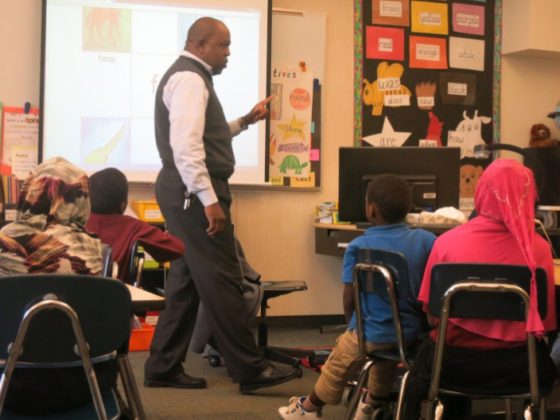Immigrant families often come to the US hoping for a better life for their children. That can mean learning English at a public school. But it can also mean maintaining a language, like Spanish, that families speak at home. Research shows retaining the second language has benefits. But what if one culture shares multiple languages?
That’s a challenge Portland, Oregon’s Rosa Parks Elementary School is taking up with its Somali students. It hasn’t always been easy.
